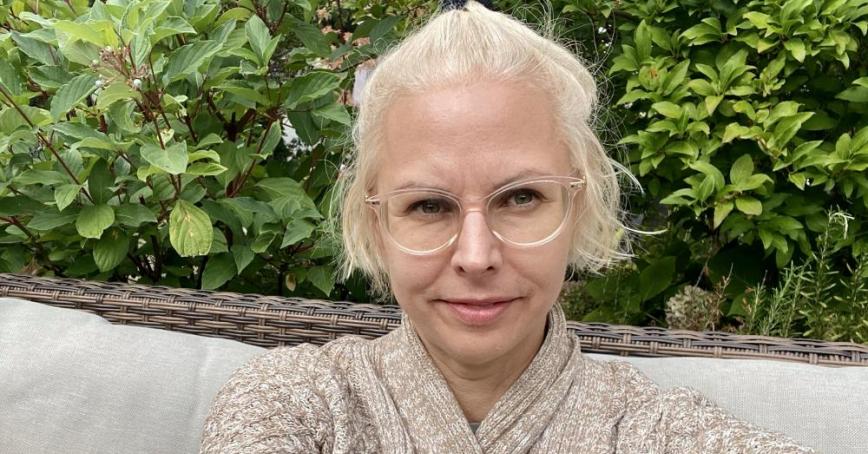Passion paired with purpose leads student to Elizabeth Fry Society
Topics
Featured
Share online

Nicole Kudor has worked in sales, publishing and advertising for the last 20 years, but both her education and her heart have long been rooted in concerns about justice and inequality.
Now, she’s pairing those passions with purpose on a work term with Elizabeth Fry Society in Victoria, BC as she pursues her Master of Arts in Justice Studies at Royal Roads University.
Kudor, co-owner of Bravo Creative for the last 16 years, is working at EFry until the end of September, funded by an RBC Community Integrated Learning Grant to do community outreach supporting individuals who are involved in the justice system, particularly BIPOC women and women with children. She meets with corrections officials, Crown and defence lawyers and community partners to establish referrals into diversion programs. Programs with opportunities to perform acts of service or other community-based restitution for women and for opportunities to allow them to continue to care for children in their care while serving their sentences.
"Many women in prison have been victims of much more serious offences than those they are accused of committing,” Kudor says. “And the vast majority are sentenced to very short sentences — usually less than six months — and on average end up serving less than 40 days. These short terms of imprisonment are long enough to break up families but often not long enough for meaningful interventions that address problems leading to offending behavior.
“It’s very disconcerting to think that no one is paying attention to what’s happening with these kids,” she adds. “Part of what I’m doing is going into these meetings and talking about the best interests of the child.”
Chrystal Lattie, an EFry program manager — and 2013 graduate of RRU’s Master of Arts in Conflict Analysis and Management program — says, “The connections and partnerships that Nicole has developed are critical to the implementation of EFry programming to further support individuals who are involved in the justice system. Often times, our clients find it difficult navigating the justice system and connecting with needed supports, and the programming that Nicole has been working on will support clients in making these connections.”
Kudor, who previously earned a BA (Hons) double-major in sociology, justice and law enforcement in her native Manitoba and is training volunteers to take over when her placement ends, says the on-the-job experience has been invaluable, noting: “You can read case studies about people’s situations… but to see it happening in front of you, and really how these policies impact women’s lives, it’s a really great experience, one I’ll never forget.”
She also credits the RBC grant for funding her placement so she could temporarily step back from work, as well as Royal Roads for the flexibility of learning that has allowed her to maintain her business while pursuing her studies.
“I’ve always been very, very interested in why some people have an easier time in life than others,” says Kudor, who aims to get into health and policy research. “Inequality — where it all comes from, the systems that generate inequality, what that looks like, what can be done about it… This program was the closest thing I could find to addressing the underbelly of all that and give me tools to do something about it.”
Learn more about the Master of Arts in Justice Studies program or request more information.
Through the generosity of the Royal Bank of Canada Foundation, RBC Community Integrated Learning Grants provide funding to students who are completing a career learning and development work term in the community with a small business, non-profit or charitable organization that could not otherwise provide wages or compensation.